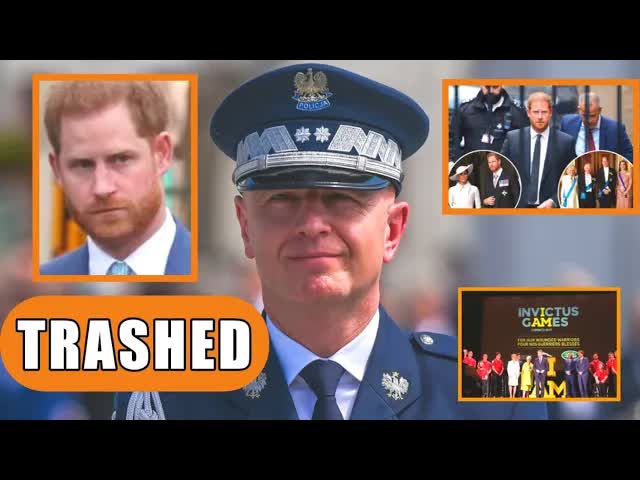Prince Harry’s planned return to the UK for the 10th anniversary of the Invictus Games faces an unexpected obstacle as British authorities have turned down his plea for state-funded security.
This decision comes amid escalating tensions between the Duke of Sussex and the UK government following his withdrawal from royal duties and relocation to North America.
The Invictus Games, an esteemed international sporting event for wounded service personnel and veterans, holds significant sentimental value for Prince Harry, who established the Games in 2014 and has been a staunch advocate ever since.
However, his self-imposed exile and public criticisms of the royal family and the UK have strained his ties with his homeland.
The news of the denied security request has sparked a flurry of controversy in the media.
Supporters of Prince Harry have condemned the British authorities, accusing them of pettiness and disrespect towards a distinguished veteran who has served his country with honor.
They argue that the high-profile nature of the Invictus Games and the potential security risks associated with it warrant police protection for the prince.
Conversely, critics view this as a calculated move by Prince Harry to leverage the Invictus Games for personal gain.
They highlight that upon renouncing his royal responsibilities, he also forfeited the entitlement to publicly funded security details.
Additionally, they question the validity of the security threat, suggesting that Harry’s celebrity status overshadows any genuine peril.
This latest development sheds light on a deeper issue – Prince Harry’s ongoing struggle to redefine his role outside the royal family’s constraints.
His aspiration to uphold a prominent public profile while seeking special privileges appears contradictory to many.
Numerous Britons opine that if he genuinely desires financial independence and a normal life, he should relinquish all royal privileges, including security.
The rejection of Harry’s security request also signifies a shift in public sentiment towards the Sussexes.
While there was initially an outpouring of sympathy following their dramatic departure from royal life, subsequent interviews and revelations in a tell-all book detailing perceived grievances and mistreatment by the royal family have soured public opinion.
Many believe the couple is exploiting their royal connections for personal gain while criticizing the institution that provided them with a platform.
Furthermore, Prince Harry’s legal battle with the UK government over his right to privately fund police protection during his UK visits has further tarnished his reputation.
Critics perceive this as an attempt to enjoy the prestige of his royal title while evading the associated responsibilities.
The security concerns surrounding Prince Harry threaten to overshadow the essence of the Invictus Games, which have always stood as a symbol of hope and inspiration for wounded veterans.
It is now incumbent upon him to demonstrate unwavering commitment to the core values of the games and participate without becoming the focal point of unwanted attention.
Britain, on its part, faces the challenge of ensuring Prince Harry’s and all participants’ safety at the Invictus Games without establishing an undesirable precedent.
Striking this balance will require careful navigation to safeguard the well-being of the inspiring athletes, who embody the true spirit of the Invictus Games.
Ultimately, the success of the event hinges on all involved parties prioritizing the athletes’ welfare and upholding the event’s noble ethos.
